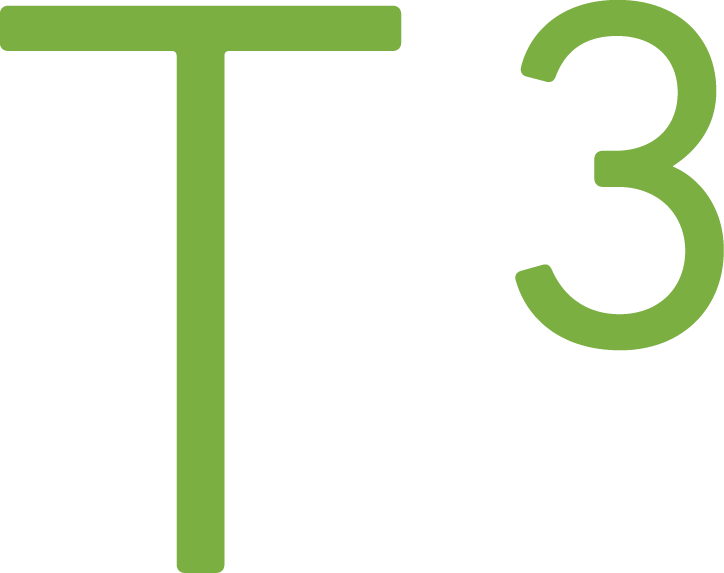Using automation and delegation to bring employment advantages to freelancing

One of the main reasons why many professionals don't want freelance is the number of responsibilities beyond practicing their craft: accounting, marketing, job-seeking, learning (without being paid for it), handling bureaucracy, etc. We needn't have the same mentality our grandparents had (they believed that they needed to do everything themselves). The modern world is much more complex, and people have different kinds of responsibilities and activities in their lives. In this blog post, I will try to give ideas about simplifying freelancing by not doing everything on your own.
Where to start?
Let's assume that you're already running your solo business, and you've clients that fill your days with work. You get most of your projects by actively searching for and contacting clients rather than being sent work proposals. All this takes time, and, of course, you need to file your monthly paperwork with the government, send and pay bills, etc.
If you charge by the hour, it is easy to calculate the cost of spending time on unbillable work. Assigning value to your time makes you think about wasted time. Of course, not every spare minute can be converted to billable work time, but you can think of this as a model.
Your freelancing business is an engine, and the engine has to be running before you can "tune" it. The engine may be running slowly and with bottlenecks, but it needs to be running (you must have paying clients).

Identifying the bottlenecks
It is easy to get into the habit of doing things without considering how you can simplify them or avoid doing them at all. One of the most obvious decisions is delegating your accounting. Do your own accounting for a few months to get an idea of how an accountant can help you, but leave the job to a professional for the long-term. You're probably thinking that getting an accountant isn't the idea of the year, and you're absolutely right. The thing is that people stop there, but an accountant is just the beginning.
People quite often hire an accountant, then stick to the process they agreed to during the initial negotiation. I've done this too. When we hired our accountant, we decided that I would deliver the material each month and she would do the magic. I thought it was better to provide printed documents because that's what we had discussed. Printing receipts was a waste of time and natural resources, but I was so sure that things would be easier for her and, therefore, cheaper for me. I was wrong. When I finally spoke to her she immediately agreed that storing the material in the cloud was much more convenient. She decided to upload the work to Dropbox.
I shared a Dropbox folder with the accountant, and she created an example directory structure to be used each month. For example, one folder was for Business MasterCard invoices and another was for bank account invoices.
We now put invoices in certain folders and the accountant does the rest. Seems quite convenient so far, doesn't it? We can do better.
There were a couple of tasks that wasted time:
- re-creating the directory structure every month (minor waste of time)
- collecting all the invoices (major waste of time)
Automating
The appropriate type of automation depends on the task that will be automated, and it can be anything from connecting apps using IFTTT to creating a robot that performs manual labor. The spectrum of solutions is broad, but many freelancers are working fully or partly online, and solutions are therefore easier to implement than in the mechanical world.
Let's get back to the bottlenecks, creating the folder structure each month.
There are several requirements for the solution:
- I am using Windows, but the solution should work on Linux and OS X
- it should include one step that can be scheduled
- it should create a predefined folder structure for the previous month
- it should accommodate new years (if I do the operation on January 2016, the folder structure for December 2015 should be created)
I concluded that a Bourne/Bash Shell script (.sh) fulfills all these criteria (it requires a bit of work on Windows, but it's doable). I have to admit that I write scripts so infrequently, I wasn't motivated to learn the syntax, so I outsourced this small task.
Outsourcing the automation
I have outsourced both recurring tasks (such as proof-reading the blog post you're reading now) and small projects. Writing a Bash Shell script falls in the latter category. After thinking about the requirements and edge cases (if any), I created specifications:
I needed a shell script that created a predefined folder structure for the -previous month-, based on the current date.
The structure is as follows:
{year}
{month_with_zero_padding}
45 Nordea {month}.{year}
46 MasterCard
...
{year}
{month}
45 Nordea {month}.{year}
46 MasterCard
Example output for this month (November):
2015
10
45 Nordea 10.2015
45 MasterCard
If any of the folders exist then nothing should be overwritten!
That should be pretty clear, even to a novice developer. Later, I added a reminder about the change of year.
I posted the assignment to Upwork and found several promising candidates. People who didn't understand the simple assignment described above asked questions that the job post had already answered. From the group of promising candidates, I chose Mr. Maxim from Russia.
The outcome? I paid $25 and received working script on the same day. We were both happy and we gave each other positive feedback.
Virtual Assistants
There was still one bottleneck left: uploading all the material on Dropbox. As you can imagine, there are numerous web services that we need monthly. We need international services like GitHub, Google Apps for Work, Heroku, and DNSimple, and we need local services like pension payments and banking.
First, we must understand all the steps that are required to successfully deliver monthly information to the accountant:
- get bank statement
- get credit card statement
- go through bank statement and collect invoices
- get a pension payment invoice (pdf)
- get Finnish entrepreneurs' annual payments
- etc.
- go through credit card statement and collect invoices
- go to Heroku web-site and download latest invoice
- get Prezi invoice from an email attachment
- etc.
- put all the files on the correct Dropbox folder
- notify accountant that all the material is in place
I realized that it is really difficult and time-consuming to engineer a software solution that incorporates all these steps because each service delivers invoices differently:
- email itself
- email attachment
- email link to the invoice
- email notification of a new invoice
If the invoices are in the service itself, there are numerous authentication methods and invoices locations. A software solution was out of question.
Who could handle this task? The main requirement was understanding Finnish (many of the invoices were in Finnish). I stumbled upon the term virtual assistant in the book The 4-Hour Work Week: Escape the 9-5, Live Anywhere and Join the New Rich

. I googled for Finnish virtual assistants and found Soljuen.com. At the time, there was only one virtual assistant, Pauliina, a Finn who lived in Spain. Today she has a small network of virtual assistants, each with a different area of expertise.
Using virtual assistant services is quite new here in Finland, so I had plenty of questions and didn't know what to expect. Had I delivered enough information? Was that a suitable task?
I worried too much. I was lucky to find a professional virtual assistant who answered my questions and was pleasant to communicate with.
I didn't want to give access to my complete Inbox, but not because I didn't trust the VA. Not sharing your whole life is just a common sense security practice. For example, confidential material from clients may be accessible. Limiting access to certain emails and services is worthy of another blog post. Send me a tweet if you want to hear about it.
Conclusion
As I am writing this blog post today, the process is as follows:
- month changes
- I get bank and credit card statements
- virtual assistant creates a folder structure and collects invoices
- (in some cases I might manually collect one or two invoices that are not accessible to the VA)
- notification is sent to the accountant
It takes 5–10 minutes per month instead of hours. Earlier it took at least an hour to go through all the steps; annually that amounts to a minimum of 12 hours of saved time! But remember, this is just one example; many other aspects can be improved. Not only in freelancing, but in life general. I have used VA services, for example, for planning a holiday trip.
The end result is that you're spending almost as little on mundane tasks as an employee, but still having the freelancers benefits.
If you found this delegating and automating example useful then please let me know!
